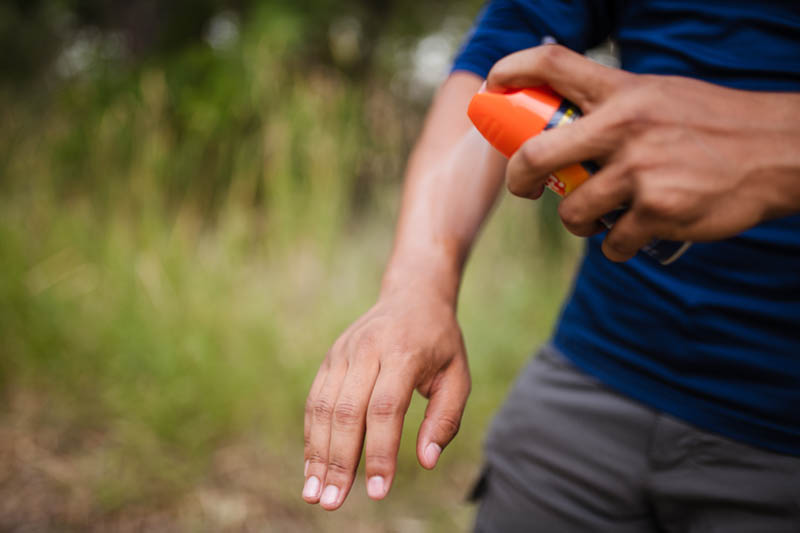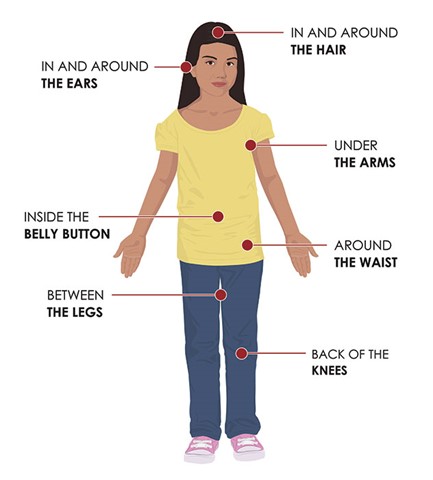Tick-borne Encephalitis
What is tick-borne encephalitis?
Tick-borne encephalitis (TBE) is a disease caused by a virus. The virus spreads to people in a few ways:
- Bite from an infected tick
- Eating or drinking unpasteurized dairy products (milk and cheese) from infected goats, sheep, or cows.
Most people infected with tick-borne encephalitis do not feel sick. When symptoms occur, they may include fever, aches, loss of appetite, headache, nausea, and vomiting. Some people develop swelling of the brain and/or spinal cord, confusion, and sensory disturbances. Tick-borne encephalitis can sometimes cause death.
Who can get tick-borne encephalitis?
Travelers to many parts of Europe and Asia may be at risk for infection with TBE virus. Check if this disease is a concern at your destination.
Activities that increase a travelers’ chances getting tick-borne encephalitis include camping, hiking, and hunting. Travelers are more likely to get infected with TBE when traveling to affected areas April through November, this is when ticks are most active.
What can travelers do to prevent tick-borne encephalitis?

Travelers can protect themselves against TBE by taking the following precautions:
Prevent Tick Bites
- Know where to expect ticks. Ticks live in grassy, brushy, or wooded areas, or even on animals. Spending time outside camping, gardening, or hunting could bring you in close contact with ticks. Many people get ticks in their own yard or neighborhood.
- Treat clothing and gear with products containing 0.5% permethrin. Permethrin can be used to treat boots, clothing and camping gear and remain protective through several washings. Alternatively, you can buy permethrin-treated clothing and gear.
- Use Environmental Protection Agency (EPA)-registered insect repellents containing DEET, picaridin, IR3535, Oil of Lemon Eucalyptus (OLE), para-menthane-diol (PMD), or 2-undecanone. EPA’s helpful search tool can help you find the product that best suits your needs. Always follow product instructions. Do not use products containing OLE or PMD on children under 3 years old.
- Avoid Contact with Ticks
- Avoid wooded and brushy areas with high grass and leaf litter.
- Walk in the center of trails.

Find and Remove Ticks
- Check your clothing for ticks. Ticks may be carried into the house on clothing. Any ticks that are found should be removed. When possible, tumble dry clothes in a dryer on high heat for 10 minutes to kill ticks on dry clothing after you come indoors. If the clothes are damp, additional time may be needed. If the clothes require washing first, hot water is recommended. Cold and medium temperature water will not kill ticks.
- Examine gear and pets. Ticks can ride on clothing and pets, then attach to a person later, so carefully examine pets, coats, and daypacks.
- Shower soon after being outdoors. Showering within two hours of coming indoors has been shown to reduce your risk of getting tick-borne diseases. Showering may help wash off unattached ticks and it is a good opportunity to do a tick check.
- Check your body for ticks. Conduct a full body check upon return from potentially tick-infested areas. Use a hand-held or full-length mirror to view all parts of your body. Check these parts of your body for ticks:
- Under the arms
- In and around the ears
- Inside belly button
- Back of the knees
- In and around the hair
- Between the legs
- Around the waist
- If you find a tick attached to your skin, simply remove the tick as soon as possible.
Eat only pasteurized dairy products
Get vaccinated if recommended
Tick-borne encephalitis vaccine is recommended for travelers who are moving or traveling to a TBE-endemic area and will have extensive exposure to ticks based on their planned outdoor activities and itinerary.
In addition, TBE vaccine may be considered for persons traveling or moving to a TBE-endemic area who might engage in outdoor activities in areas ticks are likely to be found. The decision to vaccinate should be based on an assessment of their planned activities and itinerary, risk factors for a poorer medical outcome, and personal perception and tolerance of risk.
After Travel

If you traveled and feel sick, particularly if you have a fever, talk to a healthcare provider and tell them about your travel.
If you need medical care abroad, see Getting Health Care During Travel.
Traveler Information
- Tick-borne Encephalitis
- Avoid Bug Bites - Information for travelers
- Insect Repellent Use and Safety